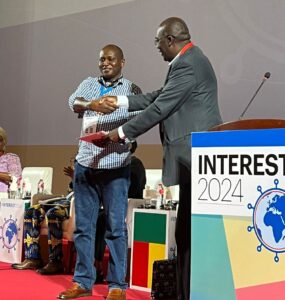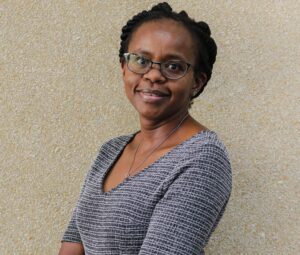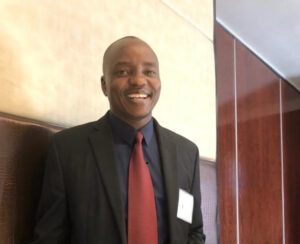Evidence has an important role to play in improving policy, programme and practice decisions that ultimately improve the development and implementation of sound policy. The availability of evidence guides policymakers in adopting policy guidelines and recommendations with special consideration for available resources and the unique characteristics of a particular context.
As part of engaging key stakeholders in the policy space, under the Leaving no-one behind: transforming Gendered pathways to Health for TB (LIGHT) project, the African Institute for Development Policy (AFIDEP) conducted an Evidence-Informed Decision Making (EIDM) training with the Zankli Research Center (ZRC). The EIDM training took place from July 4 to 7, 2022 at the Bingham University, Nigeria as the host institute to the selected members of the Nigeria National Tuberculosis Control Programme.
The training, which targeted TB programme managers and TB-affiliated institutions, aimed to build the capacity of policy influencers in championing interventions and strategies to reduce TB. Among the participants were two CARTA fellows, Olufunmilayo Banjo (Cohort 3 graduate) attending as a participant and Tumaini Malenga (Cohort 4 graduate) as a facilitator.
Olufunmilayo is a Lecturer and Researcher based at the Centre for Gender and Social Policy Studies at Obafemi Awolowo University, Nigeria. She attended the training having participated in an earlier interview to provide a gendered understanding of TB and its consequences from an academic perspective, and the need for a vibrant collaboration between the health sector and academia from a gender perspective.
A Public Health Researcher, Tumaini currently works as a Research and Policy Analyst, under the health and wellbeing portfolio with AFIDEP in Malawi. On the LIGHT project, she is a Research Uptake Manager at the African regional level and facilitates EIDM training to strengthen stakeholder capacity.
EIDM is a process where high-quality evidence from research, local data, and professional experiences is synthesised, disseminated, and applied to decision-making in policy and practice. The EIDM culture, therefore, advocates for a push for the use of evidence in the formulation and implementation of policies, programmes, and practices for effective and equitable allocation of resources and formulation of cost-effective interventions.
LIGHT is a cross-disciplinary global health research programme funded by the UK government in partnership with six partners institutes that include:
- African Institute for Development Policy (AFIDEP), Kenya and Malawi;
- Zankli Research Center – Bingham University (ZRC), Nigeria;
- Malawi-Liverpool-Wellcome Trust Clinical Research Programme (MLW), Malawi;
- Respiratory Society of Kenya (ReSOK), Kenya
- Makerere University Lung Institute (MLI), Uganda and
- Liverpool School of Tropical Medicine (LSTM)
One of the main goals of the LIGHT Capacity Strengthening Strategic Framework is to strengthen knowledge translation and consistent use of evidence for decision-making to achieve sustainable, equitable development. The initiative will contribute to improved health, socio-economic and equity outcomes, and efforts to stop the spread of TB.





No Comments